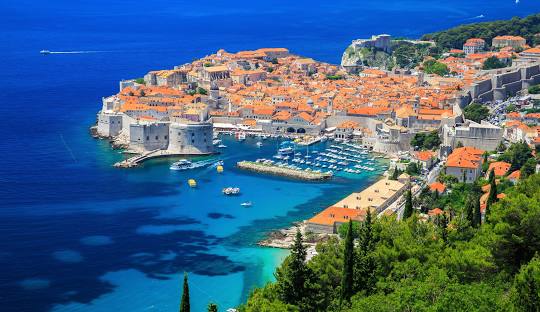Loading
Welcome to Study & Immigration

Croatia, a member of the European Union since 2013, has become an increasingly popular destination for foreign nationals seeking to work in the region. Known for its stunning coastline, rich culture, and thriving tourism industry, Croatia offers a variety of work opportunities for both skilled professionals and seasonal workers. However, for non-EU nationals, obtaining a work permit can be a complex process. In this section, we’ll outline the essential information you need to know about working in Croatia, from the types of work permits available to the application process.
Croatia offers several types of work permits depending on the nature of the employment, the duration of stay, and the applicant's qualifications. Here's a breakdown of the key types:
Temporary Residence and Work Permit (Single Permit)
This is the most common work permit for non-EU nationals. The Temporary Residence and Work Permit, often referred to as the "single permit," combines both residency and work authorization into one document. This permit allows you to live and work in Croatia for a fixed period, usually up to one year, with the possibility of renewal.
EU Blue Card
Croatia also participates in the EU Blue Card program, which is designed to attract highly skilled professionals from outside the EU. If you have a university degree or equivalent, and you’ve been offered a high-paying job in Croatia, you can apply for the Blue Card.
Seasonal Work Permit
Given Croatia’s booming tourism industry, seasonal work permits are common for workers in hospitality, agriculture, and other industries with seasonal demand. These permits are valid for a shorter period—usually up to 90 days within a six-month period.
The process for obtaining a work permit in Croatia involves several steps, which are generally handled by your Croatian employer. Here's a breakdown of what to expect during the application process:
Find an Employer
To begin the process, you’ll need to secure a job offer from a Croatian employer. The employer will play a key role in the application process, as they are responsible for submitting the necessary documentation to the relevant authorities.
Employer Submits the Application
Once you have a job offer, your employer will submit the application for your work permit to the Croatian Ministry of the Interior or the local police department (depending on your place of residence). This application will include details of your job offer, qualifications, and proof that the employer has been unable to find a suitable candidate from Croatia or the EU.
Gather Required Documents
You will need to provide several documents to support your application, including:
Submit the Application
After your employer submits the application, you may be asked to provide additional documentation or attend an interview at the Croatian embassy or consulate in your home country, depending on your nationality.
Wait for Processing
The processing time for work permit applications in Croatia can vary, but it typically takes 2-3 months for non-EU nationals. Seasonal work permits may be processed more quickly, depending on the urgency of the situation.
Approval and Residence Card
Once your application is approved, you will receive your work permit, and you may also be issued a residence card. For longer stays, you will need to apply for a residence permit, which will allow you to live in Croatia for the duration of your employment.
Salary Requirements: For skilled workers applying for a Blue Card, there is a minimum salary requirement that must be met. This threshold is typically set higher than the average wage in Croatia to ensure that highly qualified workers are compensated fairly.
Language Requirements: While Croatian is the official language, many international companies operate in English, especially in cities like Zagreb, Split, and Rijeka. However, knowing some basic Croatian can be helpful for daily life and work interactions, particularly in smaller companies or less touristy regions.
Health Insurance: You must have valid health insurance to work and live in Croatia. If your employer doesn’t provide insurance, you’ll need to arrange this yourself through private insurance or the Croatian health system.
Family Members: If you are granted a work permit and residence in Croatia, your immediate family (spouse and children) may be eligible to join you under family reunification procedures. They may also be granted a residence permit, allowing them to stay in the country.